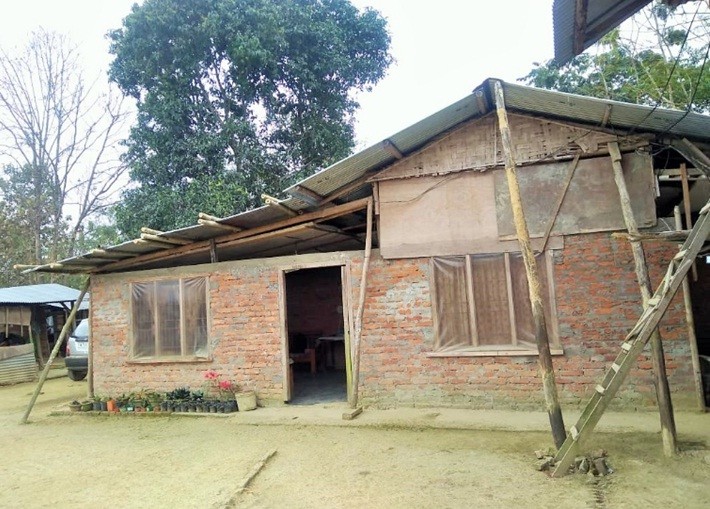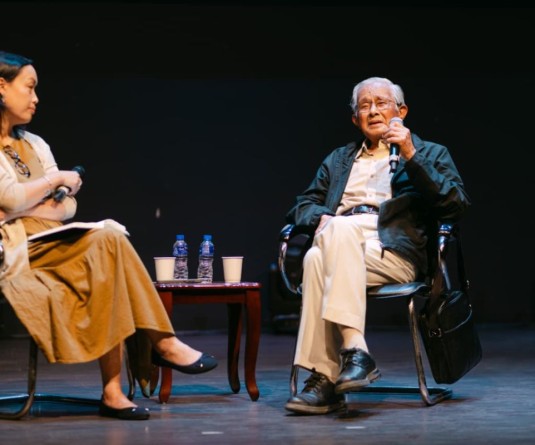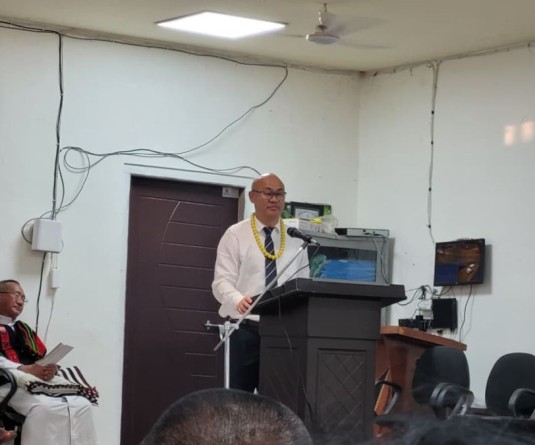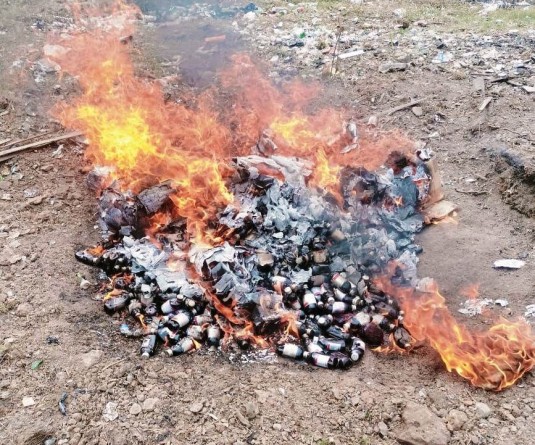The under-construction workshop of Imnameren Imsong located at Suhoi village on the outskirts of Dimapur. (Photo Courtesy: NIF India)

Dimapur, August 26 (MExN): Tapioca is a major crop in Mokokchung district of Nagaland, and is regarded as a promising livestock feed worldwide. While pig husbandry is a quite a phenomenon in the state, farmers often face problems in slicing large amounts of tapioca daily to feed them.
A local innovator develops a proof of concept but is unable to convert it into a product owing to lack of facilities and materials. If he could, he would have developed it, established his enterprise in the district itself, thus selling his product to the many who may need it. But he had to relocate! His is not a standalone case-many home grown innovators in the state have found themselves in a similar situation.
A celebrated Naga musician and an innovator Moa Subong invented a bamboo wind musical instrument called the BamHum, where one only needs to hum into instrument to play notes. Originally from Mokokchung, he was quick to realize back in 1990s that staying connected is the key. His music demanded a lot of tours, travels and promotions, and hence he and his wife, both lead members of the band, decided to shift base to Dimapur.
According to a press statement issued by National Innovation Foundation-India (NIF), In Nagaland, with the exception of Dimapur, all towns are located in hilly areas, the topography of which poses a limitation in expansion and development. This problem gets compounded with the current state of infrastructure. Deemed as the entry point of the state, Dimapur’s close proximity with a largely flat region Assam makes it well-connected by road and rail than any other town in the state. With jobs in public domain reaching saturation, there has been a gradual shift in mindset of the young local populace towards innovation and entrepreneurship. Location of the enterprise, however, is of utmost importance, because entrepreneurship is already a fraught-prone occupation and one may not like to risk its success by situating it at a lesser connected place.
The ‘pull’ of Dimapur in attracting budding Naga entrepreneurs can be attributed to several factors –availability of information, infrastructure, proximity to raw materials, market linkages, cheap skilled labor – among many others. Exemption from the Inner Line Permit (till December 2019) resulted in migrants forming the bulk of the available labour force. When Lanu Jamir, another innovator from Mokokchung, started off with his venture of selling electronic load controllers and speakers, he faced labor shortage. He realized why business owners preferred to engage with immigrants for cheap and skilled labor, and that Dimapur was thus the most convenient place to find the same.
Imlitoshi Namo, a serial innovator, found himself jobless after graduating in Geology. To convert a waste resource into raw material, he developed a ‘slicing’ machine that could remove bamboo nodes, and do the planing, polishing and contouring of bamboo. However, inadequate working capital, irregular electricity and lesser scope of marketing the finished goods at his hometown brought him to Dimapur. The Tapioca slicing machine mentioned earlier was developed by Imnameren Imsong, a small pig farmer. He is now setting up a full-fledged workshop at the outskirts of Dimapur, but plans to open a retail outlet of his products some day at his hometown, Mokokchung as well.
Some of the above limitations make the tasks of National Innovation Foundation-India (NIF), an autonomous body of the Department of Science and Technology, Government of India, challenging. NIF follows an in-situ incubation model where all technical, financial and mentoring support is provided to the innovator at his place of residence so that he can grow wherever he is. This process gets hampered if a person is located in a remote area.
NIF still recognizes the creative efforts of such grassroots innovators by giving awards, providing them financial support to develop prototypes, technical and mentoring support. It has also supported innovators in establishing community fabrication workshops so that apart from them, other innovators from the region may also benefit by utilizing these facilities to fabricate/develop their own innovations.
However, there is still a large gap that needs to be fulfilled in terms of infrastructure development, market linkages, financial support and adequate ecosystem development. The entry barriers may seem large to overcome, but there is a wave of young determined innovators who aspire and work towards making a change. The need is to bring all the stakeholders together to join hands to build a robust and enabling ecosystem. Despite all constraints, NIF remains determined to continue contributing its bit to this.
For collaboration with the innovators or with the organization, write at bd@nifindia.org






